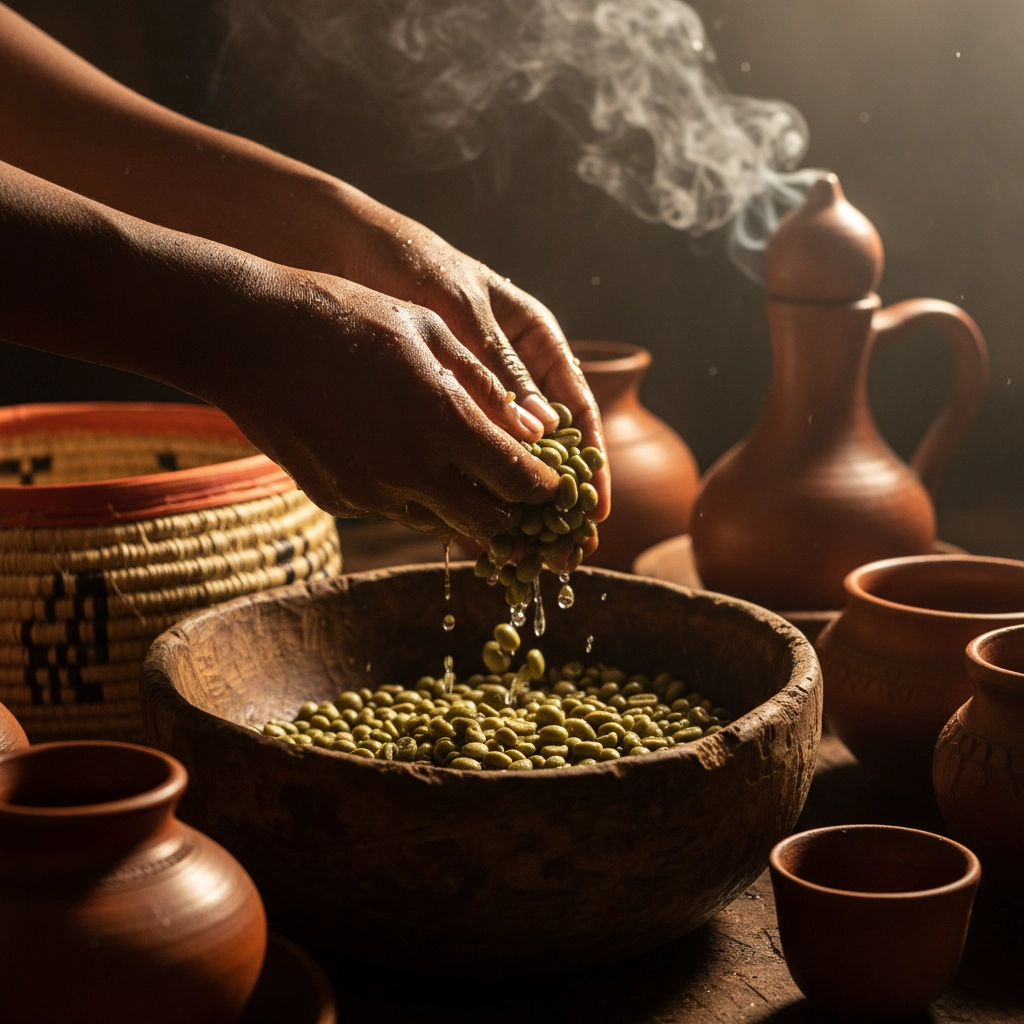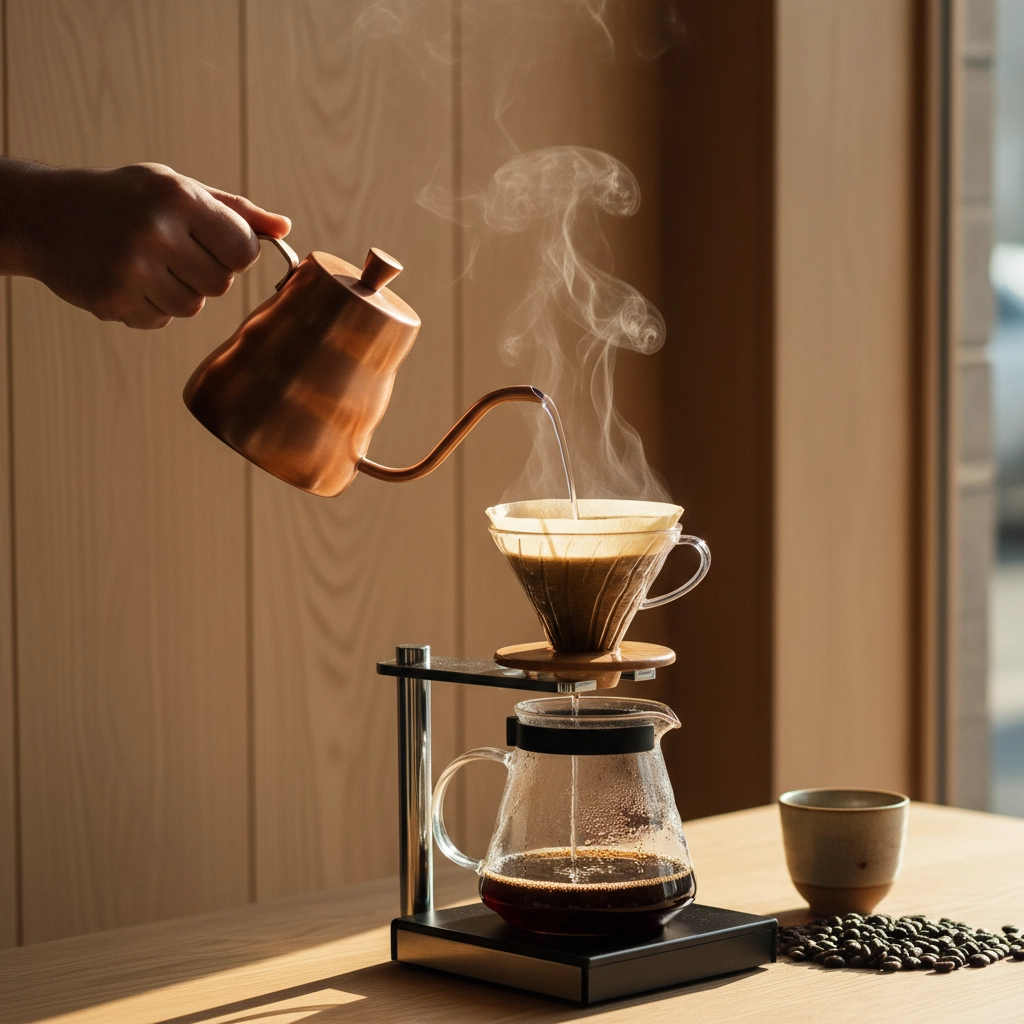Ever wonder why your morning cup of joe feels like more than just caffeine? You're tapping into something way bigger than you might think. Coffee isn't just a drink: it's a cultural phenomenon that's been bringing people together, sparking conversations, and creating sacred moments for centuries across the globe.
From the highlands of Ethiopia to the bustling cafés of Italy, coffee has woven itself into the fabric of human civilization in ways that go far beyond simply keeping us awake. Let's take a journey around the world to explore how different cultures have embraced coffee and turned it into something truly special.
Ethiopia: Where It All Began
You can't talk about coffee culture without starting in Ethiopia, the birthplace of coffee itself. Legend has it that a goat herder named Kaldi first discovered coffee when he noticed his goats getting unusually energetic after eating certain berries. Whether that's true or not, Ethiopia's coffee ceremony is absolutely the real deal: and it's gorgeous.
The Ethiopian coffee ceremony isn't something you rush through on your way to work. This is a three-hour ritual that brings the whole community together. Women typically lead the ceremony, starting by washing fresh green coffee beans and roasting them over an open flame. The smell alone is incredible: rich, earthy, and absolutely intoxicating.

The coffee is then ground by hand and brewed in a clay pot called a jebena. Here's where it gets interesting: the ceremony involves three rounds of coffee, each with its own name and significance. The first round is called "abol," the second "tona," and the third "baraka": which literally means "blessing." Each cup is supposed to bring you closer to spiritual transformation.
If you want to experience something close to this traditional ritual at home, try our Asian Plateau Blend. Its earthy, complex notes capture some of that ancient Ethiopian magic.
Italy: The Art of the Quick Connection
Jump over to Italy, and you'll find a completely different coffee culture: but one that's equally passionate. Italians didn't just invent espresso; they created an entire social framework around it. Walk into any Italian café in the morning, and you'll see people standing at the bar, downing their espresso in about 30 seconds, chatting with the barista, and heading off to start their day.
But don't mistake speed for lack of care. Italians take their coffee seriously. They have rules: no cappuccino after 11 AM (it's considered a breakfast drink), no coffee with meals (it interferes with digestion), and absolutely no asking for a "to-go cup": coffee is meant to be savored in the moment, not sipped on the run.
The Italian approach teaches us something beautiful: you can have both quality and efficiency. A quick espresso break isn't about rushing: it's about taking a intentional pause to connect with your community before diving back into life.
For that authentic Italian experience at home, our French Roast delivers the bold, robust flavor that Italian coffee culture demands.
Turkey: Coffee Grounds and Fortune Telling
Turkish coffee culture is all about the details and a little bit of magic. Dating back to the Ottoman Empire, Turkish coffee is prepared in a special copper pot called a cezve, and it's ground so fine it's almost powdery. The brewing process is slow and meditative: you can't rush it.
But here's the really cool part: after you finish your Turkish coffee, someone can read your fortune in the grounds left at the bottom of your cup. This practice, called tasseography, turns every coffee break into a potential glimpse into your future. The shapes and patterns in the grounds supposedly reveal everything from upcoming travels to romantic encounters.
Turkish coffee also plays a huge role in marriage customs. Traditionally, a woman's ability to make good Turkish coffee was considered one of the qualities a potential bride needed to demonstrate to her future mother-in-law. Talk about pressure!

Japan: Coffee as Craft
Japan's relationship with coffee is relatively new compared to other cultures, but they've embraced it with their characteristic attention to detail and pursuit of perfection. Japanese coffee culture focuses on precision, quality, and the ritual of preparation itself.
You'll find coffee shops in Japan where the barista weighs every gram of coffee and water, controls temperature to the exact degree, and pours with movements that look more like martial arts than beverage preparation. This isn't showing off: it's about respecting the craft and creating the perfect cup every single time.
The Japanese concept of "omotenashi": hospitality without expectation of reward: shows up in their coffee culture too. Every cup is prepared with genuine care and attention, turning a simple transaction into a meaningful interaction.
Scandinavia: Fika and the Art of Taking Breaks
The Scandinavian countries have given the world one of the best coffee-related concepts: fika. In Sweden, fika isn't just a coffee break: it's a philosophy. It's about deliberately stopping what you're doing, sitting down with coffee and something sweet, and connecting with the people around you.
Fika happens twice a day in many Swedish workplaces, and it's not optional. It's considered essential for maintaining good relationships and mental health. The idea is that these regular pauses for coffee and conversation create stronger communities and happier people.
Our Breakfast Blend is perfect for your own fika moments: smooth enough to savor slowly while you actually talk to the people in your life.
The American South: Coffee and Community
While the American South is famous for sweet tea, coffee has its own special place in Southern hospitality. Coffee in the South isn't just about the drink: it's about the excuse to sit on the porch, catch up with neighbors, and take life a little slower.
Southern coffee culture emphasizes comfort and accessibility. You'll find coffee served alongside biscuits, with conversations that can stretch for hours. It's not about impressing anyone with fancy equipment or exotic beans: it's about creating a warm, welcoming space where everyone feels included.

Our Gourmet Donut Shop blend captures that Southern spirit perfectly: approachable, comforting, and absolutely delicious with something sweet.
The Middle East: Spice and Everything Nice
Throughout the Middle East, coffee often comes with cardamom, creating a fragrant, warming drink that reflects the region's long history with spice trading. This isn't just about flavor: adding cardamom turns coffee into something that connects you to centuries of cultural tradition.
Middle Eastern coffee culture also emphasizes hospitality. Offering coffee to a guest is one of the highest signs of respect, and refusing it can actually be considered rude. The preparation and presentation of coffee becomes a way of honoring your relationships and showing care for the people in your life.
What Coffee Culture Teaches Us
Looking at how different cultures approach coffee reveals some beautiful universal truths. Whether it's the three-hour Ethiopian ceremony or the 30-second Italian espresso, coffee consistently serves as a bridge between people. It creates moments of connection in our busy lives.
Coffee culture also shows us that rituals matter. Taking time to prepare something carefully, sharing it with others, and being present in the moment: these simple acts become profound when we approach them with intention.
For those moments when you want something truly special, our Whiskey Barrel Aged coffee offers a unique experience that honors the craft and complexity that make coffee culture so rich around the world.
Bringing It Home
The beautiful thing about coffee culture is that you don't need to travel the world to experience it. Every time you slow down to really taste your coffee, invite a friend to join you, or turn your morning brew into a moment of mindfulness, you're participating in this global tradition.
Whether you prefer the quick intensity of an Italian-style espresso or the contemplative ritual of a slow pour-over, you're connecting to something bigger than yourself. You're joining a conversation that spans continents and centuries, one cup at a time.
So tomorrow morning, when you take that first sip, remember: you're not just drinking coffee. You're participating in one of humanity's most beautiful and enduring cultural traditions. And that's something worth savoring.




